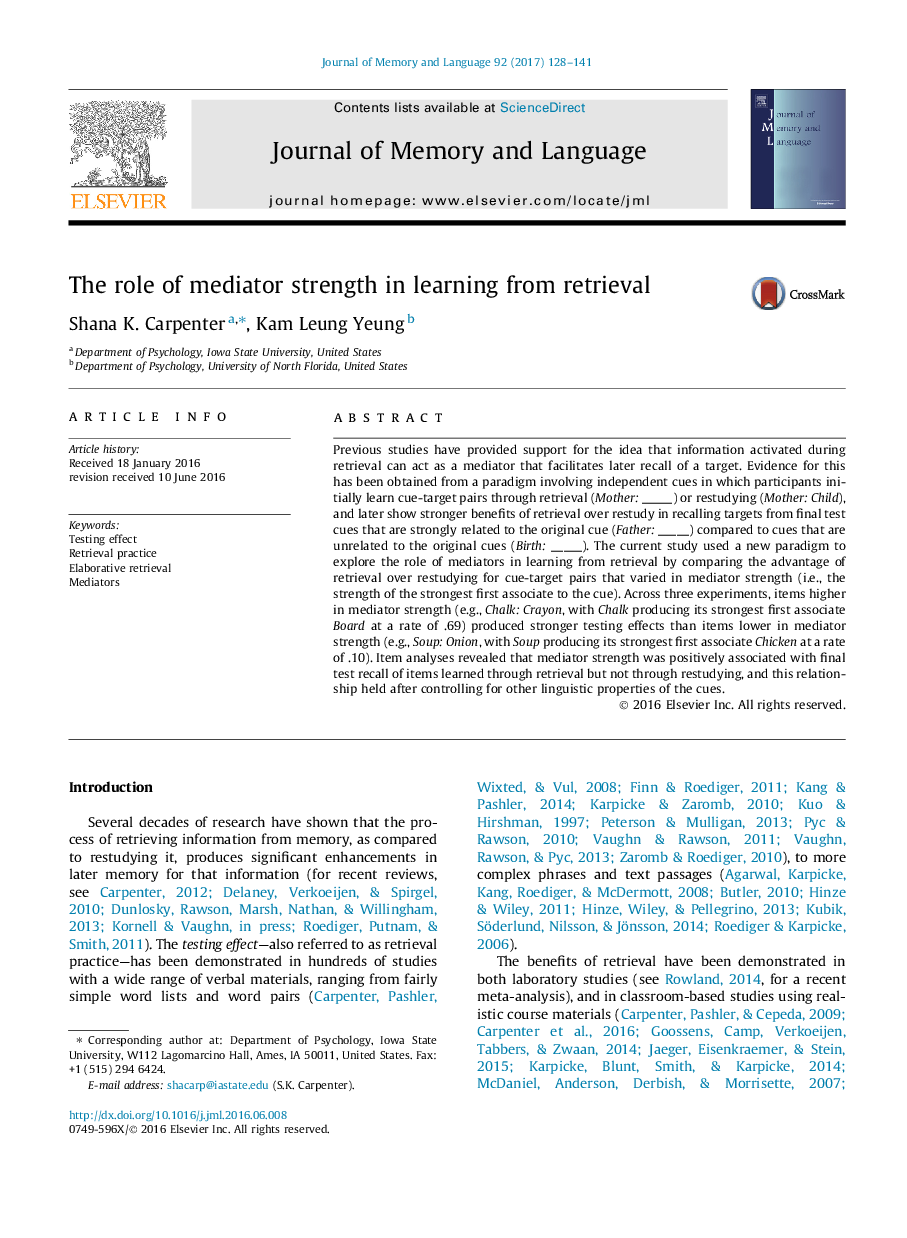| Article ID | Journal | Published Year | Pages | File Type |
|---|---|---|---|---|
| 931739 | Journal of Memory and Language | 2017 | 14 Pages |
•Mediators can be utilized during the retrieval process to link a cue and target.•The current study explored the role of mediators using a standard testing effect design.•Cue-target items that contained stronger mediators yielded stronger testing effects.
Previous studies have provided support for the idea that information activated during retrieval can act as a mediator that facilitates later recall of a target. Evidence for this has been obtained from a paradigm involving independent cues in which participants initially learn cue-target pairs through retrieval (Mother: _____) or restudying (Mother: Child), and later show stronger benefits of retrieval over restudy in recalling targets from final test cues that are strongly related to the original cue (Father: _____) compared to cues that are unrelated to the original cues (Birth: _____). The current study used a new paradigm to explore the role of mediators in learning from retrieval by comparing the advantage of retrieval over restudying for cue-target pairs that varied in mediator strength (i.e., the strength of the strongest first associate to the cue). Across three experiments, items higher in mediator strength (e.g., Chalk: Crayon, with Chalk producing its strongest first associate Board at a rate of .69) produced stronger testing effects than items lower in mediator strength (e.g., Soup: Onion, with Soup producing its strongest first associate Chicken at a rate of .10). Item analyses revealed that mediator strength was positively associated with final test recall of items learned through retrieval but not through restudying, and this relationship held after controlling for other linguistic properties of the cues.
